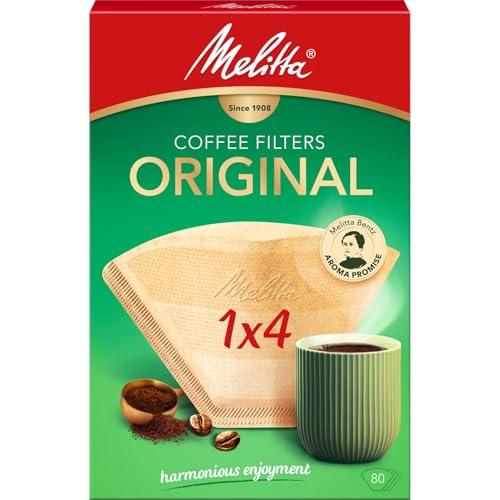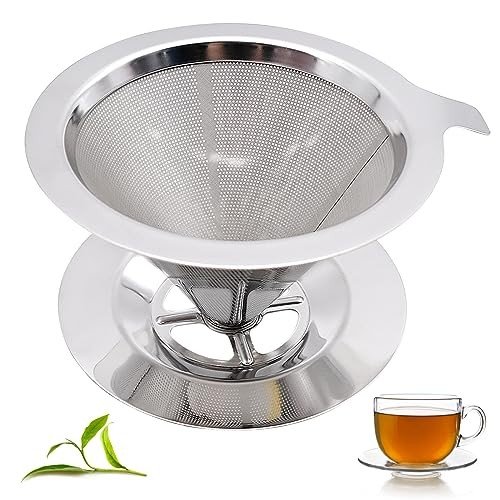Coffee filters are an essential part of brewing that perfect cup. They catch all the coffee grounds while letting the rich flavors pass through, ensuring you get a smooth sip every time. Whether you're using a drip coffee maker or a pour-over setup, having the right filters makes all the difference in your daily brew.
Coffee Filters
Find the perfect filters to elevate your coffee brewing experience
Product List
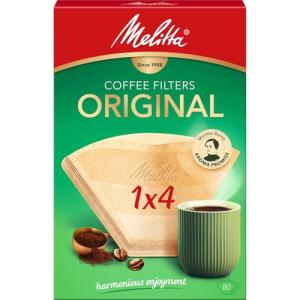
Melitta 1x4 Coffee Filters, 80 Count
Melitta
Product Review Score
4.91 out of 5 stars
99 reviews$9.99

ZHIYE 100 Unbleached Coffee Filters
Zhiye
Product Review Score
4.55 out of 5 stars
129 reviews$5.99
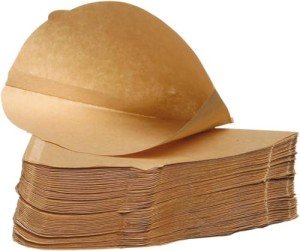
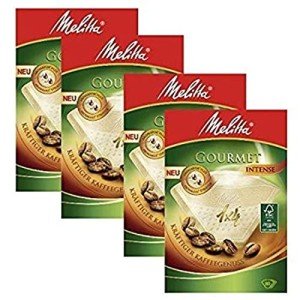
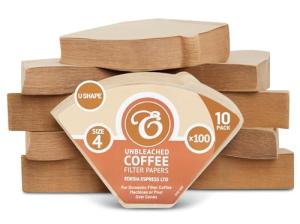
Edesia Espresso Filters - 1000 Pack
Edesia Espress
Product Review Score
4.83 out of 5 stars
108 reviews

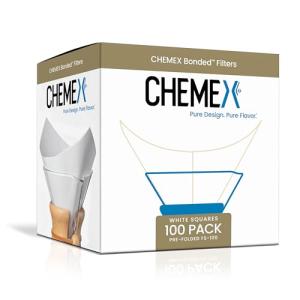


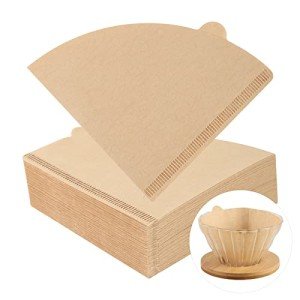
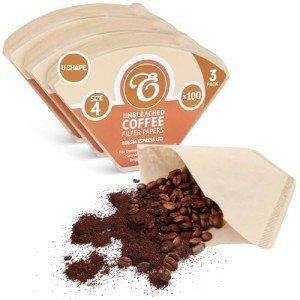
Edesia Espresso Filters - 300 Pack
Edesia Espress
Product Review Score
4.97 out of 5 stars
152 reviews$15.93
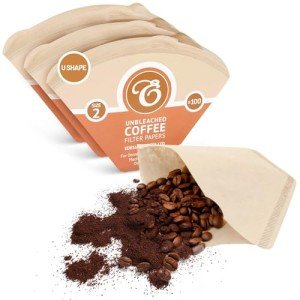
Edesia Espresso Coffee Filters - 300 Pack
Edesia Espress
Product Review Score
4.36 out of 5 stars
41 reviews
Coffee is one of the most beloved beverages worldwide, enjoyed by millions for its rich flavors and invigorating effects. However, the journey from the coffee bean to your cup involves several critical steps, one of which is brewing. A vital element in the brewing process is the coffee filter. Though often overlooked, coffee filters play a significant role in the taste, aroma, and overall experience of the beverage. This guide provides an in-depth look at coffee filters, including their types, benefits, and frequently asked questions.
What are Coffee Filters?
Coffee filters are materials used in the brewing process to separate coffee grounds from the liquid brewed coffee. They are an essential component in various coffee-making methods, from drip coffee makers to French presses. The main function of a coffee filter is to prevent coffee grounds from entering the final brew while allowing flavorful oils and soluble compounds to pass through.
Types of Coffee Filters
There are several types of coffee filters, each with its unique characteristics and effects on the brewing process. Below is a table summarizing the most common types:
| Type of Coffee Filter | Material | Reusability | Flavor Profile | Brewing Method |
|---|---|---|---|---|
| Paper Filters | Paper | Single-use | Clean, crisp | Drip coffee makers, pour-over |
| Metal Filters | Stainless steel | Reusable | Bold, full-bodied | French presses, some drip makers |
| Cloth Filters | Fabric | Reusable | Smooth, nuanced | Pour-over, French presses |
| Plastic Filters | Plastic | Single-use | Neutral | Some drip coffee makers |
1. Paper Filters
Paper filters are perhaps the most widely used coffee filters, especially in automatic drip coffee makers. Made from paper pulp, these filters are biodegradable and designed for single use. They tend to produce a clean and crisp cup by trapping some of the oils and fines (small coffee particles).
2. Metal Filters
Metal filters, typically made from stainless steel, are gaining popularity due to their reusability and eco-friendliness. They allow oils to pass through, resulting in a fuller body and richer flavor profile in the final brew. Many coffee enthusiasts prefer metal filters as they do not impart any taste to the coffee.
3. Cloth Filters
Cloth filters, often made from cotton or other fabric materials, can also be reused after washing. They produce a smooth cup of coffee, offering a balance between the crispness of paper filters and the boldness of metal filters. However, they do require more maintenance and care.
4. Plastic Filters
Plastic filters, commonly used in low-cost coffee makers, are generally less favored due to their single-use nature and less optimal brewing results. They provide a neutral flavor profile but can sometimes contribute a slight plastic taste to the coffee.
Benefits of Using Coffee Filters
Using coffee filters offers numerous advantages. Here are some of the key benefits:
1. Clarity and Flavor
Coffee filters, especially paper and cloth types, help to enhance the clarity and flavor of the coffee. By preventing fine coffee particles from entering the brew, they create a smoother cup.
2. Easier Cleanup
Filters make the brewing process less messy, allowing for an easy disposal of used grounds. Metal and cloth filters can be rinsed and reused, reducing the hassle of cleaning up.
3. Versatility
Different brewing methods can utilize various types of coffee filters, making them versatile. Whether you are using a French press, drip coffee maker, or pour-over setup, the right filter can enhance the brewing experience.
Choosing the Right Coffee Filter
When it comes to selecting the right coffee filter, personal preference plays a crucial role. However, the following factors can aid in your decision-making process:
-
Brewing Method: Choose a filter that complements your coffee-making technique. For instance, metal filters are ideal for French presses, while paper filters excel in drip machines.
-
Flavor Preference: Consider the flavor profile you desire. If you prefer a clean cup, paper filters will suit your needs, whereas metal filters create a bolder taste.
-
Environmental Impact: If sustainability is important to you, opt for reusable options like metal or cloth filters, which reduce waste.
-
Cost: Consider your budget. While disposable paper filters can be inexpensive initially, reusable metal and cloth filters can save money in the long run.
Frequently Asked Questions (FAQs)
1. Are paper coffee filters safe to use?
Yes, paper coffee filters are generally made from food-safe materials. However, individuals with sensitivities to paper or certain chemicals should check for unbleached options.
2. Can I use regular paper towels as coffee filters?
While using paper towels in a pinch can work, it may not yield the best results. Paper towels may break apart and leave debris in your coffee, potentially affecting the taste.
3. How often should I clean metal or cloth coffee filters?
Metal filters can be easily cleaned with warm, soapy water after each use. Cloth filters should be rinsed immediately to prevent coffee oils from building up and should be washed regularly (e.g., weekly) in hot water.
4. Do coffee filters affect caffeine levels?
The type of coffee filter can influence the caffeine extraction slightly, but the difference is negligible for most consumers. Paper filters tend to trap more oils that influence the flavor rather than caffeine levels.
5. Can I use multiple filters at once?
Yes, using multiple filters can enhance the clarity of your coffee, especially if your chosen filter tends to allow more sediment to pass through. This approach, however, may slightly alter the brewing time.
Coffee filters are a vital aspect of the coffee-brewing process, directly influencing the flavor and quality of the final product. By understanding the different types, benefits, and selection criteria for coffee filters, enthusiasts can make informed choices that will elevate their coffee experience. Whether you prefer the clean taste of a paper filter or the rich flavors obtained through a metal option, the right filter is essential for brewing that perfect cup of coffee.
